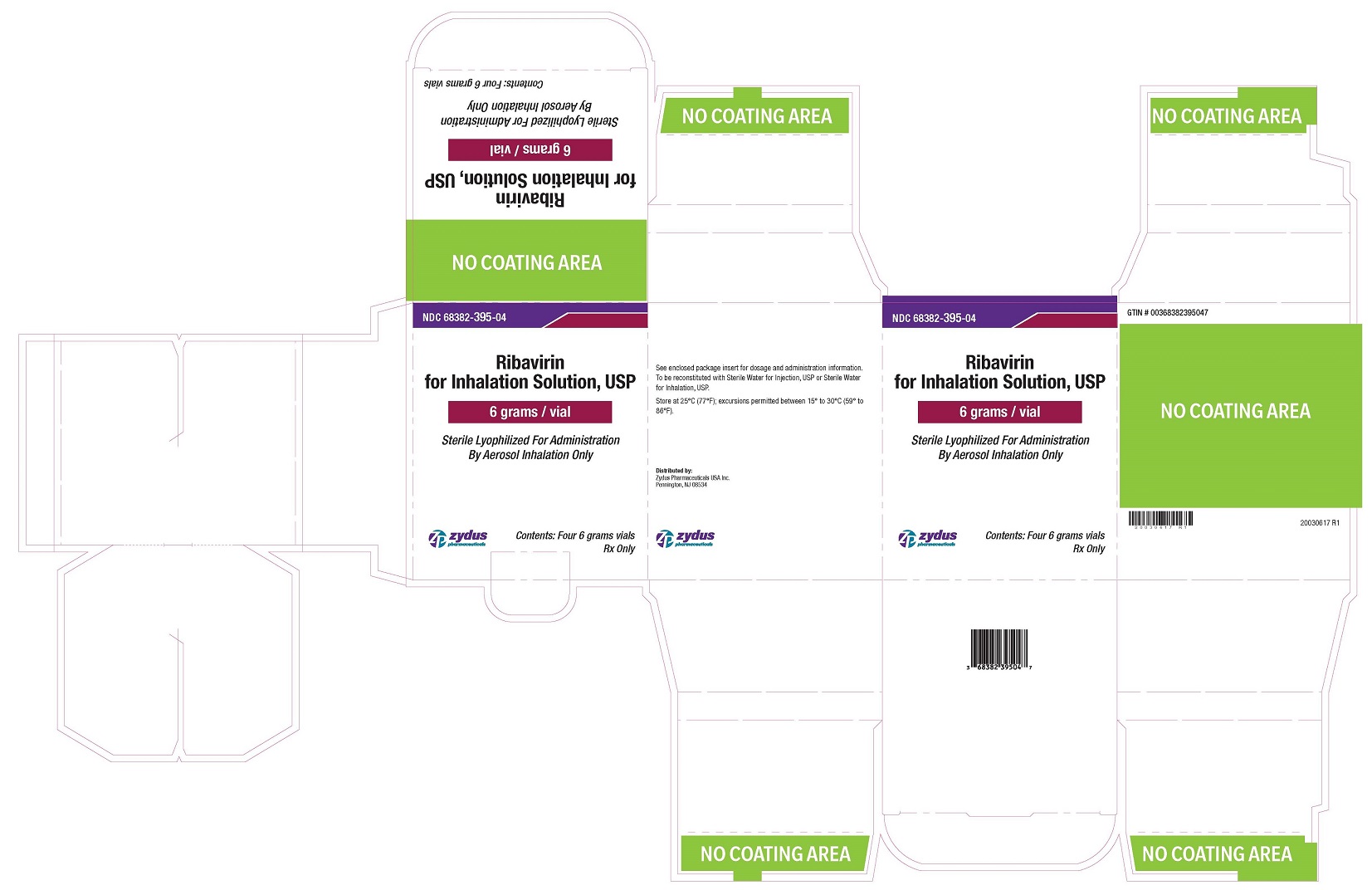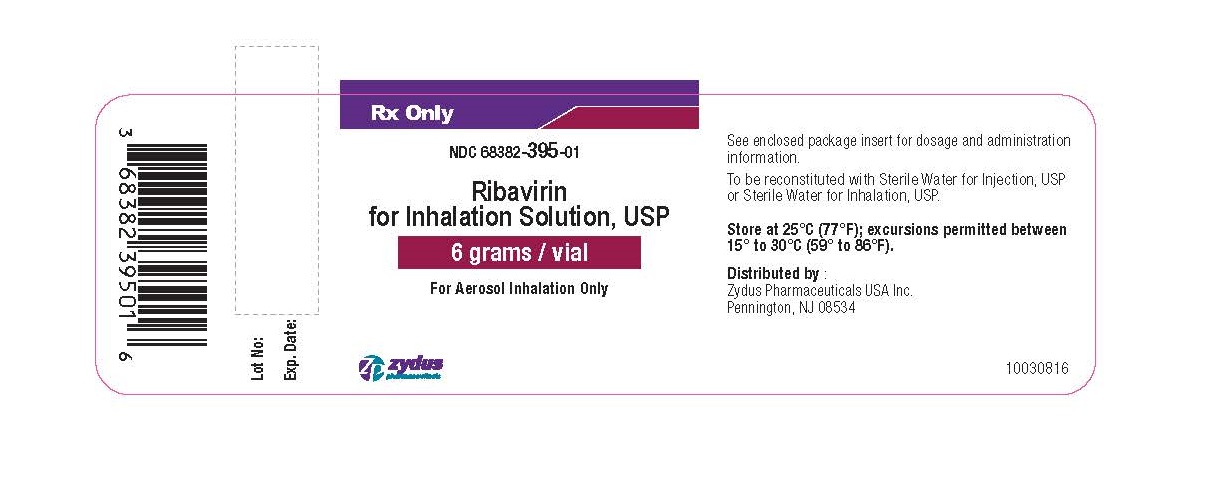It is a well known fact that breastfeeding is best source of nutrition for infants. Breast milk provides minerals, vitamins and antibodies in most acceptable format when they need it. Nutrition taken by mother passes to breast-milk and same thing applies to medicines taken by mothers. Not all drugs cause problem for baby but some do. Lets analyze if Ribavirin Powder, For Solution is safe for baby while breastfed.
What is Ribavirin Powder, For Solution used for?
Ribavirin for inhalation solution, USP is indicated for the treatment of hospitalized infants and young children with severe lower respiratory tract infections due to respiratory syncytial virus. Treatment early in the course of severe lower respiratory tract infection may be necessary to achieve efficacy. Only severe RSV lower respiratory tract infection should be treated with ribavirin for inhalation solution, USP. The vast majority of infants and children with RSV infection have disease that is mild, self-limited, and does not require hospitalization or antiviral treatment. Many children with mild lower respiratory tract involvement will require shorter hospitalization than would be required for a full course of ribavirin for inhalation solution, USP aerosol (3 to 7 days) and should not be treated with the drug. Thus the decision to treat with ribavirin for inhalation solution, USP should be based on the severity of the RSV infection. The presence of an underlying condition such as prematurity, immunosuppression or cardiopulmonary disease may increase the severity of clinical manifestations and complications of RSV infection. Use of aerosolized ribavirin for inhalation solution, USP in patients requiring mechanical ventilator assistance should be undertaken only by physicians and support staff familiar with this mode of administration and the specific ventilator being used (see WARNINGS, and DOSAGE AND ADMINISTRATION). Diagnosis RSV infection should be documented by a rapid diagnostic method such as demonstration of viral antigen in respiratory tract secretions by immunofluorescence3,4or ELISA5 before or during the first 24 hours of treatment. Treatment may be initiated while awaiting rapid diagnostic test results. However, treatment should not be continued without documentation of RSV infection. Non-culture antigen detection techniques may have false positive or false negative results. Assessment of the clinical situation, the time of year and other parameters may warrant reevaluation of the laboratory diagnosis. Description of Studies Non-Mechanically-Ventilated Infants: In two placebo controlled trials in infants hospitalized with RSV lower respiratory tract infection, aerosolized ribavirin for inhalation solution, USP treatment had a therapeutic effect, as judged by the reduction in severity of clinical manifestations of disease by treatment day 3.3,4 Treatment was most effective when instituted within the first 3 days of clinical illness. Virus titers in respiratory secretions were also significantly reduced with ribavirin for inhalation solution, USP in one of these original studies.4 Additional controlled studies conducted since these initial trials of aerosolized ribavirin for inhalation solution, USP in the treatment of RSV infection have supported these data. Mechanically-Ventilated Infants : A randomized, double-blind, placebo-controlled evaluation of aerosolized ribavirin for inhalation solution, USP at the recommended dose was conducted in 28 infants requiring mechanical ventilation for respiratory failure caused by documented RSV infection.6 Mean age was 1.4 months (SD, 1.7 months). Seven patients had underlying diseases predisposing them to severe infection and 21 were previously normal. Aerosolized ribavirin for inhalation solution, USP treatment significantly decreased the duration of mechanical ventilation required (4.9 vs. 9.9 days, p=0.01) and duration of required supplemental oxygen (8.7 vs. 13.5 days, p=0.01). Intensive patient management and monitoring techniques were employed in this study. These included endotracheal tube suctioning every 1 to 2 hours; recording of proximal airway pressure, ventilatory rate, and FlO2 every hour; and arterial blood gas monitoring every 2 to 6 hours. To reduce the risk of ribavirin for inhalation solution, USP precipitation and ventilator malfunction, heated wire tubing, two bacterial filters connected in series in the expiratory limb of the ventilator (with filter changes every 4 hours), and water column pressure release valves to monitor internal ventilator pressures were used in connecting ventilator circuits to the SPAG-2. Employing these techniques, no technical difficulties with ribavirin for inhalation solution, USP administration were encountered during the study. Adverse events consisted of bacterial pneumonia in one case, staphyloccus bacteremia in one case and two cases of post-extubation stridor. None were felt to be related to ribavirin for inhalation solution, USP administration.
I am breastfeeding mother and I am using Ribavirin Powder, For Solution. Can it have any bad effect on my kid? Shall I search for better alternative?
Ribavirin Powder, For Solution contains only one active ingredient that is Ribavirin. We have analyzed the usage of Ribavirin in breastfeeding and our analysis suggest that Ribavirin poses Low risk for infant while breastfeeding and hence Ribavirin Powder, For Solution itself shall be considered Low risk item for breastfeeding.
Statement of Manufacturer/Labeler about breastfeeding usage
Nursing Mothers Ribavirin for inhalation solution, USP has been shown to be toxic to lactating animals and their offspring. It is not known if ribavirin for inhalation solution, USP is excreted in human milk.
Ribavirin Powder, For Solution Breastfeeding Analsys
Low RiskCAS Number: 36791-04-5
Synthetic drug and nucleoside analogue which is structurally related to guanine with antiviral activity. It is used in infants and newborns for treatment of respiratory syncytial virus (RSV) and adenovirus. Along with interferon for treatment of hepatitis C (authorized on these cases from the 3 years of life). At latest update no published data on excretion into breast milk were found. Its large volume of distribution makes it unlikely that may occur the passage of significant amounts to the milk. Its low oral bioavailability hinder the passage toward infant’s plasma from ingested milk, except in preterm milk and immediate neonatal period, for which there may be an increased intestinal permeability. Since it is used as treatment on infants and its pharmacokinetic data are favorable, it should be regarded as compatible with breastfeeding for short-term exposures, however, to be cautiously used on long-term treatments.
Ribavirin Powder, For Solution Breastfeeding Analsys - 2
CAS Number: 36791-04-5

Ribavirin has not been studied in nursing mothers being treated for hepatitis C infection. However, ribavirin is given directly to infants by inhalation to treat respiratory syncytial virus (RSV) infection. The amount in milk is likely to be lower than the doses received by infants treated with ribavirin for RSV infection. Hepatitis C is not transmitted through breastmilk[1][2] and breastmilk has been shown to inactivate hepatitis C virus (HCV).[3][4] However, the Centers for Disease Control recommends that mothers with HCV infection should consider abstaining from breastfeeding if their nipples are cracked or bleeding. It is not clear if this warning would apply to mothers who are being treated for hepatitis C. Infants born to mothers with HCV infection should be tested for HCV infection; because maternal antibody is present for the first 18 months of life and before the infant mounts an immunologic response, nucleic acid testing is recommended.[1][2]
What should I do if already breastfed my kid after using Ribavirin Powder, For Solution?
During whole lactation period you shall first discuss with your doctor and then together you shall decide whether you shall take that drug or not however if you have already taken Ribavirin Powder, For Solution then you shall inform your doctor, But you should not be worried too much as Ribavirin Powder, For Solution comes in category of low risk drug.
I am nursing mother and my doctor has suggested me to use Ribavirin Powder, For Solution, is it safe?
Though Ribavirin Powder, For Solution dose not comes in category of safe drugs rather it comes in category of low risk but if your doctor is aware that you are breastfeeding your baby and has still recommended it then its advantages must be outweighing the risks.
If I am using Ribavirin Powder, For Solution, will my baby need extra monitoring?
Not much
Who can I talk to if I have questions about usage of Ribavirin Powder, For Solution in breastfeeding?
US
National Womens Health and Breastfeeding Helpline: 800-994-9662 (TDD 888-220-5446) 9 a.m. and 6 p.m. ET, Monday through Friday
UK
National Breastfeeding Helpline: 0300-100-0212 9.30am to 9.30pm, daily
Association of Breastfeeding Mothers: 0300-330-5453
La Leche League: 0345-120-2918
The Breastfeeding Network supporter line in Bengali and Sylheti: 0300-456-2421
National Childbirth Trust (NCT): 0300-330-0700
Australia
National Breastfeeding Helpline: 1800-686-268 24 hours a day, 7 days a week
Canada
Telehealth Ontario for breastfeeding: 1-866-797-0000 24 hours a day, 7 days a week
Drug Brands with same Active ingredients



